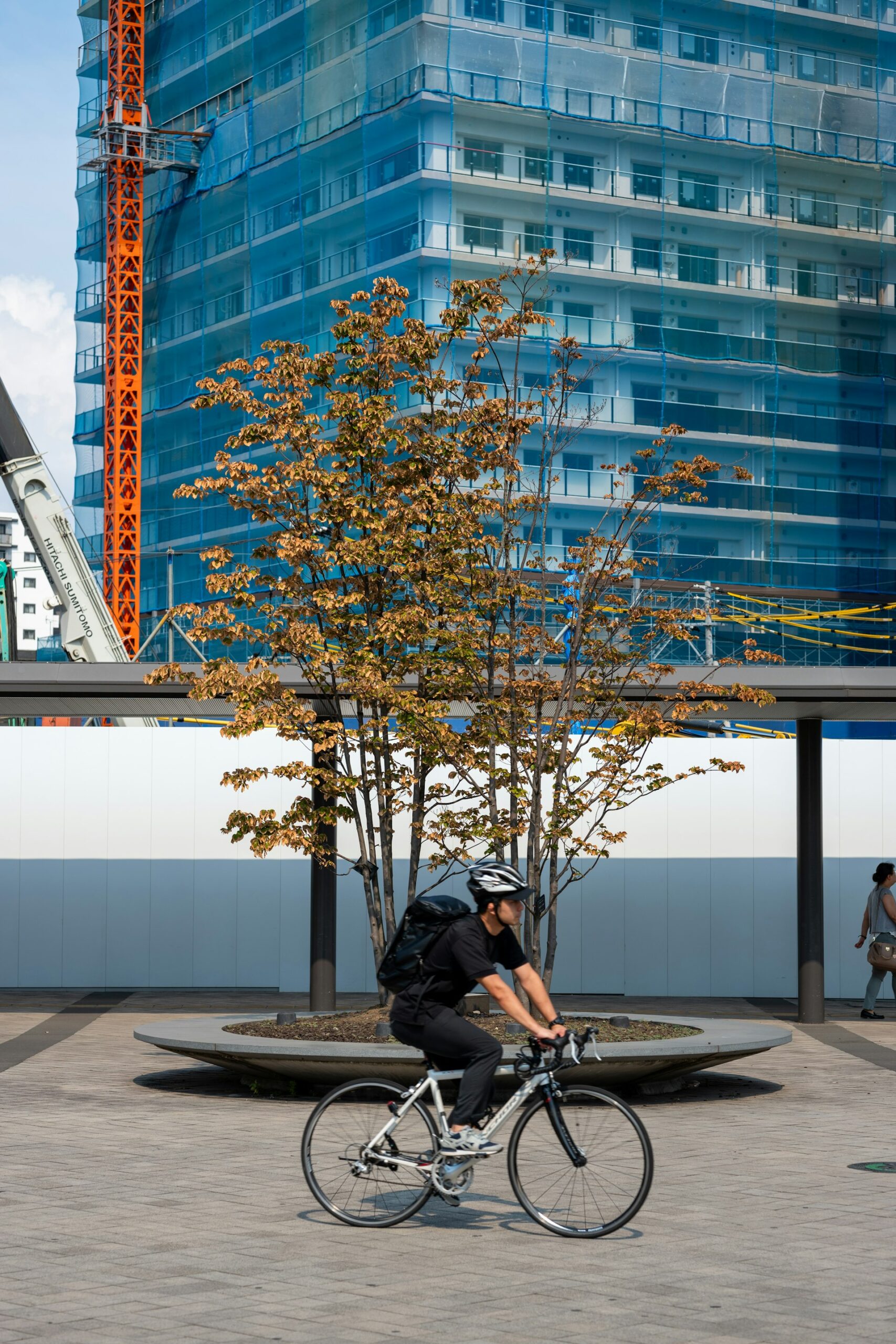2025’s Emerging Hotspots: Where Digital Nomads Are Heading Next

Photo by Fadhil Abhimantra on Unsplash
Introduction: The Rise of New Digital Nomad Destinations
The digital nomad lifestyle continues to evolve, with remote workers seeking destinations that offer more than just reliable internet. As the world becomes increasingly connected and more countries introduce dedicated visas, a new wave of cities and regions is emerging as top choices for digital nomads. These destinations blend affordability, culture, modern infrastructure, and a welcoming community, making them ideal for both work and exploration. This guide explores the most promising emerging travel destinations for digital nomads in 2025, providing detailed insights, practical guidance, and actionable steps for those ready to embark on their next adventure.
1. Porto, Portugal: Affordable Charm and Modern Living
Porto has rapidly gained attention among digital nomads who seek an alternative to Lisbon’s bustling atmosphere. The city offers a unique blend of historic architecture, the picturesque Ribeira District, and a relaxed pace of life. Coworking spaces and digital nomad-friendly cafés are plentiful, providing excellent work environments. Portugal’s digital nomad visa, which can lead to permanent residency or citizenship after five years, is a significant draw for remote workers looking for long-term stability. To apply, visit the official Portuguese government immigration portal and search for “digital nomad visa” or “D7 visa.” Applicants typically need proof of income and health insurance. Porto’s lower cost of living and mild climate make it especially appealing for those seeking both comfort and culture [1] .
2. Chiang Mai, Thailand: The Veteran’s Favorite Evolves
Chiang Mai remains a global favorite, but its recent evolution continues to attract digital nomads. The city provides a well-established infrastructure with high-speed internet, a wide selection of coworking spaces, and affordable living. Thailand’s new Destination Thailand Visa allows digital nomads to stay for up to six months per entry, making it easier than ever to experience the city’s unique blend of tradition and modernity. The application process involves submitting documents through the Thai e-visa portal; requirements may include proof of remote employment and sufficient funds. Chiang Mai’s thriving nomad community, vibrant markets, and scenic surroundings ensure a perfect balance between productivity and adventure [1] .
3. Seoul, South Korea: High-Tech Urban Energy
South Korea’s capital is quickly emerging as an exciting choice for digital nomads, thanks to its advanced technology, world-class internet, and diverse coworking options. The recently launched South Korean digital nomad visa permits remote workers to live in the country for up to two years. To apply, visit the Korean Immigration Service’s official website and search for “Workation Visa” or “digital nomad visa.” Required documents typically include proof of overseas employment, income, and travel insurance. Seoul’s efficient public transport, vibrant food scene, and four-season climate further enhance its appeal. The city offers remote workers a chance to network at tech meetups and explore countless cultural attractions [1] .
4. Tbilisi, Georgia: Culture, Affordability, and a Welcoming Visa Policy
Tbilisi stands out for its unique blend of old-world charm and modern innovation. The city’s affordable cost of living, rich culture, and growing nomad community make it an increasingly popular choice. Georgia’s visa policy is exceptionally generous: citizens of 95 countries can live and work in Georgia visa-free for up to 365 days. For those who qualify, simply arrive and begin your journey-no lengthy applications required. Tbilisi’s cobbled streets, lively cafés, and dynamic art scene offer both inspiration and relaxation. The city is also developing more coworking and coliving spaces, further supporting the needs of remote professionals [1] .
5. Siargao, Philippines: Surf, Sand, and Community
Siargao, renowned for its stunning beaches and vibrant surf culture, is gaining traction among digital nomads searching for a tropical escape. The Philippines offers affordable living, English-speaking locals, and a growing number of coworking and coliving spaces, such as Coco Space and Cowork Surf. Internet connectivity can be inconsistent in some areas, so it is advisable to research accommodations that guarantee stable connections. For visa policies, most nationalities can enter the Philippines visa-free for up to 30 days, with extensions available at local immigration offices. If you value beach life and community, Siargao could be a top pick [2] .

Photo by 毛 祥 on Unsplash
6. Cape Town, South Africa: Urban Excitement Meets Natural Beauty
Cape Town is emerging as a remote work hub in Africa, offering a vibrant tech scene, diverse coworking spaces, and access to incredible landscapes. The city is known for its cosmopolitan culture and affordability compared to other major global cities. South Africa is developing a digital nomad visa to attract more remote professionals-monitor official government announcements by searching for “South Africa digital nomad visa” on the Department of Home Affairs’ website. Cape Town’s unique blend of urban energy and outdoor adventure makes it a compelling choice for nomads seeking variety [3] .
7. Alternatives and Honorable Mentions
Several other destinations are rapidly gaining attention:
- Warsaw, Poland : Offers affordable living, a lively culture, and growing coworking options. EU citizens enjoy freedom of movement, while others can research Poland’s national visa options.
- Kuala Lumpur, Malaysia : Known for its multicultural environment, world-class cuisine, and excellent infrastructure. Malaysia’s “DE Rantau Nomad Pass” is available; application details can be found on official immigration portals.
- Tenerife, Spain : A rising hotspot for those seeking sun, reliable infrastructure, and a strong community. Spain’s digital nomad visa makes long-term stays easier-review requirements on the official Spanish Consulate site.
How to Access Digital Nomad Visas and Resources
Visa processes vary by country. Here’s a general step-by-step approach:
- Research destination-specific requirements by visiting the country’s official immigration website or consulate page.
- Prepare necessary documents, such as proof of remote employment, income, and health insurance.
- Submit your application through the official online portal, if available.
- Monitor the status of your application and respond to any additional requests from immigration authorities.
For coworking and coliving spaces, search for local providers and read reviews to ensure they meet your needs. Many cities have Facebook groups or community forums where you can connect with other nomads for recommendations and support.
Challenges and Solutions for Digital Nomads in Emerging Destinations
While opportunities abound, digital nomads may face challenges such as fluctuating internet quality, unfamiliar visa rules, or cultural adjustment. To mitigate these:
- Always verify internet speed and reliability with your accommodation before booking, especially in remote areas.
- Join online communities or forums specific to your destination to get first-hand advice from fellow nomads.
- Remain flexible and have backup plans for workspace and accommodation, especially in less-developed locations.
- For visa uncertainties, consult official government resources and consider contacting consulates directly for clarification.
Getting Started: Practical Steps
To begin your journey to any of these emerging destinations:
- Assess your work requirements-identify destinations with the best infrastructure and time zone alignment for your needs.
- Check visa options and eligibility by visiting official government immigration sites for each destination.
- Budget for living costs, travel insurance, and workspace fees. Use reputable cost of living databases for up-to-date information.
- Connect with local and online nomad networks to build community before arrival.
- Prepare for cultural differences and legal requirements (e.g., registering your address, opening a local bank account).
By following these steps and using official channels for applications and research, you’ll position yourself for a successful and enriching remote work experience abroad.



